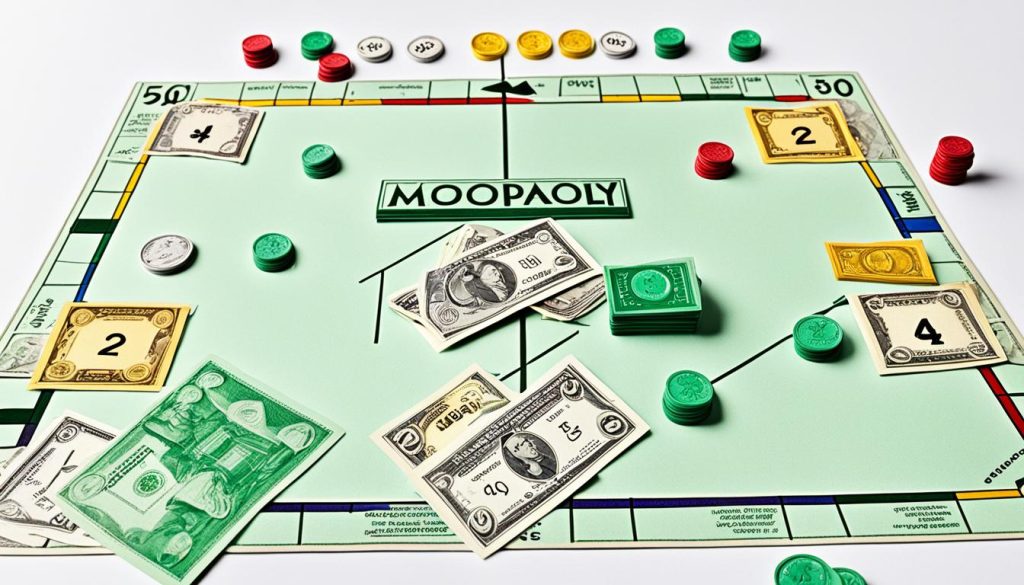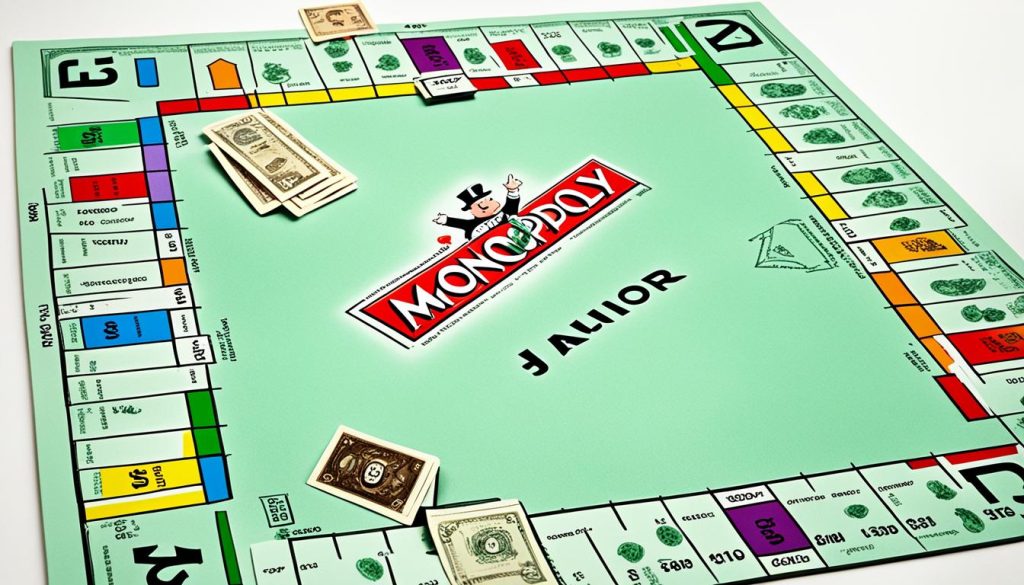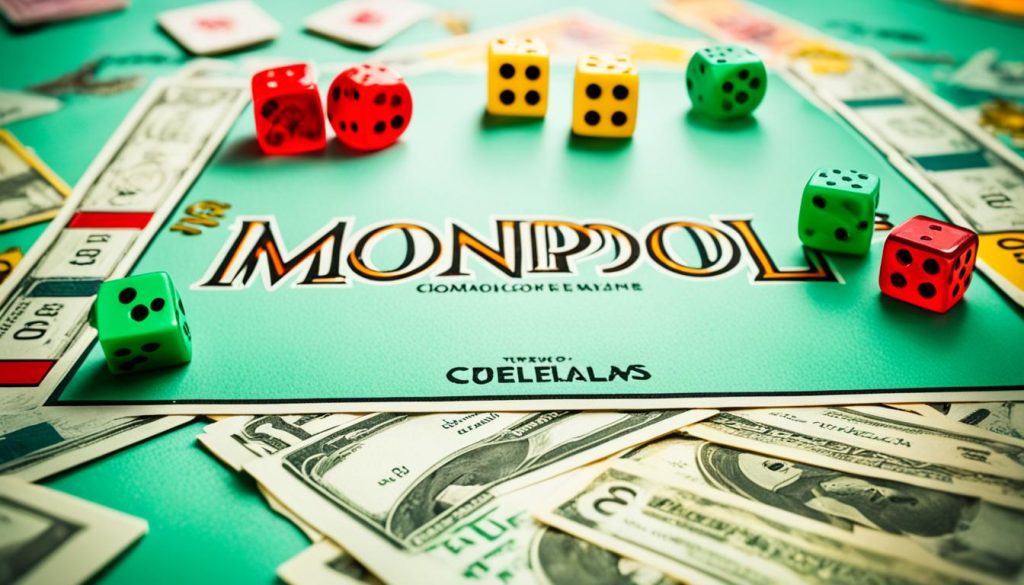Monopoly, celebrated as a classic board game played globally, invariably begins with each player receiving a stipulated amount of ‘Monopoly money’ to kick-start their property-acquiring ventures. Recognised for its complexity and the diversity of its fan base, the game demands both strategic insight and a slice of luck. The initial cash provision is an essential feature that fuels the game’s economic transactions, from property acquisitions to paying fines. It’s also a frequent question of interest among both new and veteran players.
Knowing how much money you start with in Monopoly game is a critical point of knowledge for a successful gameplay strategy. Players need to be aware of the initial funds to plan their moves effectively and make informed decisions. The Monopoly starting money ensures that every participant can actively engage in property purchases and other financial obligations right from the beginning.
Detailed Breakdown of Monopoly Starting Money
In a standard game of Monopoly, players begin with a total of £1,500. This amount is divided into various denominations to provide a mix of notes that players can use during the game. Here’s the specific breakdown:
Breakdown of Starting Capital:
- 2 x £500 notes: These are the highest denomination in the game and are useful for major purchases, such as properties and buildings later on.
- 4 x £100 notes: This denomination provides players with a good amount of liquidity, crucial for making transactions, paying rent, or buying properties early in the game.
- 1 x £50 note: A handy mid-range note that offers flexibility for various transactions.
- 1 x £20 note: Useful for smaller expenditures, helping players manage their cash flow.
- 2 x £10 notes: These notes can cover minor expenses or rent payments when cash is low.
- 1 x £5 note: Another small denomination that can be beneficial for quick, smaller purchases.
- 5 x £1 notes: The smallest denomination allows for more precise transactions, ensuring players can pay exact amounts when needed.
Here is a table summarizing the breakdown of starting capital in a standard game of Monopoly:
| Denomination | Number of Notes | Total Value (£) |
|---|---|---|
| £500 | 2 | £1,000 |
| £100 | 4 | £400 |
| £50 | 1 | £50 |
| £20 | 1 | £20 |
| £10 | 2 | £20 |
| £5 | 1 | £5 |
| £1 | 5 | £5 |

Variations in Different Editions
It is notable that different editions of Monopoly may exhibit variations in the initial cash distribution. For instance, before September 2008, the Monopoly had a different allocation, which impacted the strategic planning necessary for gameplay. Moreover, themed editions of the game may adapt the currency to suit their geographical context, ensuring relevance and immersion. Nonetheless, the purpose of monopoly money allocation remains consistent across versions: to equip players with the means to engage with the game’s economic elements dynamically from the start.
How Much Money Do You Start With in Monopoly Game for Different Player Counts?
Monopoly is a versatile game enjoyed by players of varying numbers, from a cosy duo to a boisterous group of eight. A common query among enthusiasts is how the starting money varies when playing with different player counts. Surprisingly, the official rules maintain a consistent Monopoly starting money for each player, regardless of how many participants are involved.

Playing with 2 Players
When playing Monopoly with just two participants, each player starts with the standard amount of £1,500. The dynamic shifts as there are fewer competitors for property, leading to a potentially faster-paced game. However, the strategies employed can differ significantly. Understanding how much money do you start with in monopoly with 2 players can help optimise your approach, enabling smarter investments and quicker property acquisitions.
Playing with 3 or 4 Players
With three or four players, the competition intensifies as more individuals vie for the same properties and resources. Each player still begins with £1,500, necessitating careful budgeting and strategic decisions. Knowing how much money you start with in Monopoly with 3 players or how much money you start with in Monopoly with 4 players is pivotal, as it underscores the importance of early investments and strategic property purchases.
Playing with More than 4 Players
When playing Monopoly with more than four participants, the game becomes even more competitive due to the limited number of properties. Starting funds remain at £1,500 per player, but the increased contest for assets demands sharper strategic planning. Mastering how much money you start with in Monopoly with 2 players, 3 players, or 4 players can be crucial in these larger games. Effective management of initial funds can provide a competitive edge, influencing the game’s trajectory and overall enjoyment.
Starting Money in Monopoly Junior
In **Monopoly Junior**, the starting cash for each player is lower than in the standard Monopoly game, making it more suitable for younger players. Each player begins with a total of £31 (or $31 in some versions), and here’s how that amount breaks down:
- 2 x £5 notes
- 1 x £2 note
- 4 x £1 notes

Role of the Banker in Monopoly
The banker in Monopoly is crucial for maintaining the game’s flow and balance. Entrusted with extensive responsibilities, the banker manages the bank’s funds, properties, and various financial transactions. A sacrosanct rule is that the bank’s money must be kept separate from the banker’s personal finances to avoid confusion and ensure fair play.
Among the primary responsibilities of a monopoly banker is distributing the starting cash to each player, making sure the game begins on an equal footing. This includes managing cash for property purchases, rent payments, and other financial dealings within the game.
Another significant responsibility involves auctioning properties when players decide not to buy at the face value, ensuring that such auctions are conducted fairly and transparently. The banker must also handle all payments for fines and bonuses such as those collected from the “Community Chest” and “Chance” cards.
Precision is key in managing the Monopoly bank. A proficient banker can dramatically streamline gameplay, minimising disputes and maintaining the game’s pace. Effective management of Monopoly banker responsibilities facilitates an engaging and enjoyable experience for all participants, making the role indispensable to the game’s success.
| Responsibility | Description |
|---|---|
| Starting Cash Distribution | Handing out the designated starting funds to players |
| Property Auctions | Managing and conducting auctions for unsold properties |
| Handling Transactions | Managing all payments for rent, property purchases, fines, and bonuses |
| Bank’s Funds Separation | Ensuring the bank’s money is distinct from personal funds |
Common House Rules Affecting Starting Money
When engaging in a spirited game of Monopoly, numerous players often embrace the opportunity to inject their own flavour through house rules. These Monopoly game modifications tend to alter the standard practices, particularly revolving around the initial funds allocated to each player.

Popular House Rules Variations
A popular house rule includes providing additional starting money to give players a more substantial cushion for purchasing properties early on. Another common modification involves tweaking the payouts, such as doubling the amount when passing Go or placing a cash bonus on Free Parking. These house rules in Monopoly aim to tailor the game to the players’ preferences, potentially making the game faster-paced or more engaging.
Impacts on Game Duration and Strategy
Customising Monopoly gameplay through these modifications can dramatically impact both game duration and strategic approaches. Increased starting funds often lead to a brisk game where properties are quickly snapped up, altering the financial dynamics and reducing the game’s timespan. Conversely, higher payouts and bonuses can shift strategy, encouraging riskier moves and bolstering player activity. Hence, house rules must be consensually agreed upon at the game’s outset, ensuring a fun yet balanced experience for all participants.
- Increased Starting Money: Enhances game speed and early property acquisitions.
- Double Go Payments: Adjusts financial strategies and sustains player engagement.
- Free Parking Cash Bonus: Provides additional incentives and unpredictability in earnings.
How to Adjust Starting Money for Custom Monopoly Games?
For many enthusiasts, customising Monopoly cash is an intriguing way to refresh the traditional gameplay experience. By adjusting Monopoly funds, players can create a wide range of Monopoly game variations, each offering unique strategic elements and challenges. This section delves into frequently used custom amounts and their impact on the game’s dynamics, providing insights for those looking to enhance their Monopoly sessions.
Frequently Used Custom Amounts
Adjusting Monopoly funds can significantly alter the pace and style of the game. Here are some common alterations:
- Doubling the starting money for a faster-paced, more aggressive game
- Reducing the initial funds to £1,000 for a more challenging and strategic experience
- Implementing a sliding scale based on player count to maintain balance
Impact on Game Dynamics
Changing the starting money affects various aspects of gameplay:
- Property Acquisitions: Increased funds mean faster property purchases, leading to earlier monopolies and more dynamic trading.
- Game Progression: Larger starting amounts can shorten the game duration, while smaller amounts extend it, requiring more careful financial management.
- Player Strategies: With more cash at the beginning, players might take more risks, whereas reduced funds necessitate cautious and strategic gameplay.
By thoughtfully adjusting Monopoly funds, you can craft a Monopoly experience that suits your group’s preferences, adding new layers of fun and strategy to this beloved board game.
Conclusion
Mastering the Monopoly strategy hinges greatly on understanding the nuances of starting money. Whether you are delving into the official game rules or experimenting with custom versions of Monopoly, such as Monopoly Junior, knowing how to handle the initial cash grant is essential. Each player begins with a clear-cut amount of Monopoly money, setting the stage for economic transactions that will either advance their empire or lead to financial pitfalls.
The implications of various player counts and house rules can also shape your strategic approach. While the Monopoly starting money remains constant across different player numbers, the competition for properties and financial management becomes increasingly intricate. Customising starting money to suit your gameplay preferences can introduce fresh challenges or streamline the game, making it vital to assess these factors judiciously.
Success in Monopoly demands a balance of strategic acumen, careful resource management, and sometimes, a touch of luck. By thoroughly grasping the mechanics of the Monoploy starting money, you are better poised to dominate the game. Armed with these insights on Monopoly game winning tactics, players can enhance their experience and become formidable contenders in this beloved board game.
FAQ
Are there variations in the starting money for different Monopoly editions?
Yes, different editions may have variations in starting money and denominations based on geographical themes. However, the total amount often remains consistent to ensure balanced gameplay.
What are the banker’s responsibilities regarding starting money?
The banker is responsible for distributing the starting cash, managing the bank’s funds, auctioning properties, and ensuring precise and fair execution of all transactions.
Does the starting money change for more than 4 players?
No, each player in Monopoly starts with £1,500, even if there are more than 4 players. The number of players does not affect the initial funds.






